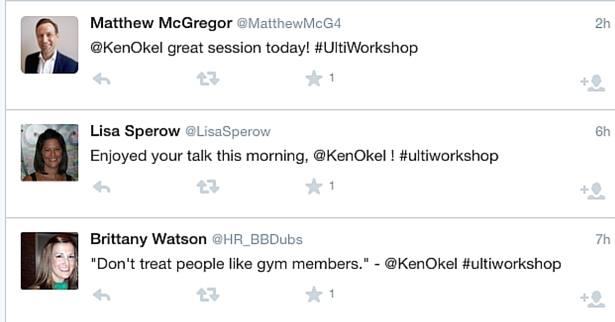 By anticipating problems, you can control and focus people’s attention. This applies to members of your team as well as customers.
By anticipating problems, you can control and focus people’s attention. This applies to members of your team as well as customers.
The concept is that when people are distracted, by even a small problem, they’re less likely to pay attention to the things that you think are important.
A example of this happens on TV news. From my time in and out of the business, I pay close attention to the start of a live interview.
You’ll see the reporter or news anchor introduce the interview subject by name. Sometimes there’s a brief pause before the name is said.
At that moment, I realize a few things. No one has put a phonetic pronunciation of the name into the teleprompter. No one has asked the interview subject how his or her name is pronounced and passed it on to all parties. And ahead of time, the anchor or reporter never asked the person to say their name.
More times than not, the name is mispronounced as the newscaster is forced to guess. I understand that the world of TV news can be hectic but not anticipating the problem of an unusual name carries some consequences.
The interview subject is no longer focused, as he or she is wondering whether they should correct the interviewer on the pronunciation of their name or just ignore the error.
They may be used to this happening but may also realize that the promotional value of their interview and their personal authority goes down when their name’s pronunciation is butchered.
Instead of focusing on the question, the interview subject is worrying about the name.
TV news stations that anticipate this problem, follow a process that ensures that no one is put in front of a microphone without everyone knowing the pronunciation of that person’s name. It’s a little thing that makes a big difference.
This also extends to making sure that news personnel who are new to the area understand how important local names and landmarks are pronounced. When you leave these things to chance, then you risk having a newscaster make a mistake and have his or her reputation take a hit.
In your world, do you try to anticipate questions or problems? Let’s say that you invite your team to a lunch meeting but when people arrive, there’s no food in sight.
Do you tell them the status of the food or leave them wondering if food is actually on the agenda?
When you don’t tell people what’s going on, then they’ll likely start to worry. People who are worrying, aren’t paying attention to the meeting.
By anticipating problems that distract people, you’ll create an environment where attention and productivity are improved.
Want to spark your creativity? Try the Paper Hat Exercise.







